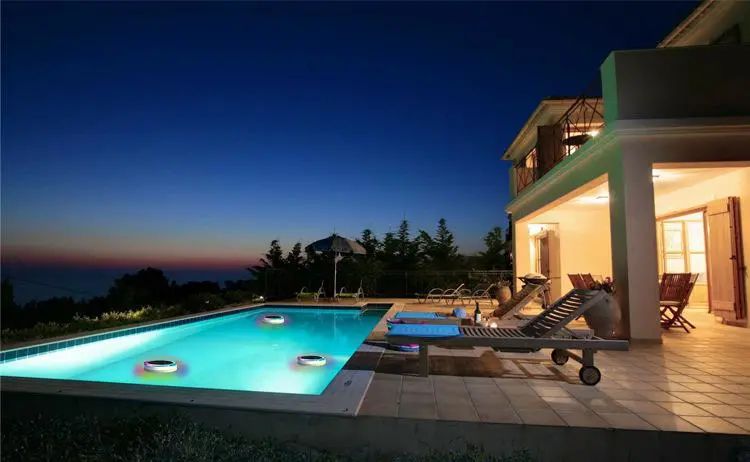
With the advancement of science and technology, the development of lamps is also changing with each passing day. The demand for lighting, which was so impressive at the time, has now decreased a lot, and the uses of electric lights have become more and more extensive. The same is true for the development of swimming pool underwater lights. From the beginning, it only needs to illuminate underwater to increase the field of vision, and now it uses colored light to render pool water and fountains to form landscapes. The scope of use of underwater lights is also expanding step by step. LED water Down lights are now the mainstream. Because of the rich color temperature of the LED light source, the flexible control of RGB or even RGBW, coupled with its advantages of energy saving, environmental protection, and durability, LED swimming pool lights are now very popular.
So for today's swimming pool lighting, what aspects should we consider when choosing lamps when designing?

The first consideration in the selection of swimming pool lights is safety. The country has clear regulations on swimming pool lights:
1. IP68 protection level (6 and 8 represent dustproof and waterproof levels)
The dustproof grade of the lamps and lanterns is divided into 6 grades. Among them, level 6 is high. The waterproof grade of lamps and lanterns is divided into 8 grades, of which grade 6 is advanced. The dustproof level of the underwater colored lights should reach level 6, and the marked symbols are: IP61--IP68.
2. Low voltage
The installation of swimming pool lights must be strictly controlled below the human body safety voltage of 36V (a special transformer is required). Swimming pool underwater lights are lamps installed underwater in swimming pools for lighting. Not only to be waterproof, but also to prevent electric shock. Therefore, its rated operating voltage is generally very low, usually 12V.

3. Transformer
On the one hand, the rated working voltage of the lamp is the parameter index of the lamp, which directly determines the use environment of the lamp, that is, the actual working voltage must be consistent with the rated working voltage. Otherwise, either the light source will be burned out because the voltage is too high, or the lighting effect of the light cannot be achieved because the voltage is too low. Therefore, general underwater lights need to be used with transformers. The transformer provides a stable voltage, so that the swimming pool underwater light can work safely and stably.
On the other hand, swimming pool lights require a relatively low voltage and cannot use the daily mains voltage, so a transformer is necessary. Since swimming pools are usually outside, the transformer also needs to be waterproof!
As for the specific protection level, it depends on the installation conditions of the voltage transformer. If it is installed in the distribution box, the distribution box must meet the outdoor waterproof requirements. If the electrical appliances are independently installed outdoors, the protection level of the electrical appliances must meet the standards for outdoor use, at least IP65.
Outdoor waterproof transformer: a fully waterproof transformer filled with glue, which can be hidden in the green belt outside the pool.

4. Lamp shell material
Different lamp housings have different application scenarios, and we can choose suitable underwater lamps according to the use site, budget and other factors. If it is used in water for a long time, the shell material of underwater lamps should have anti-corrosion function, and LED underwater lights with stainless steel shell or ABS plastic shell can be selected.
Welcome to visit swimming pool light factory!



















